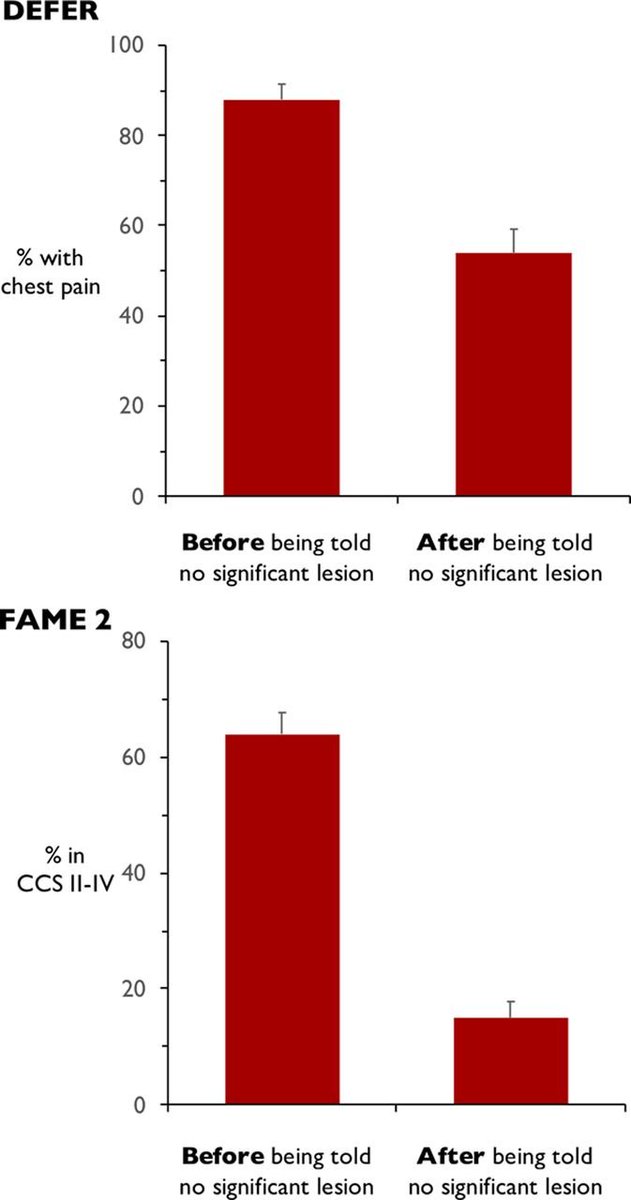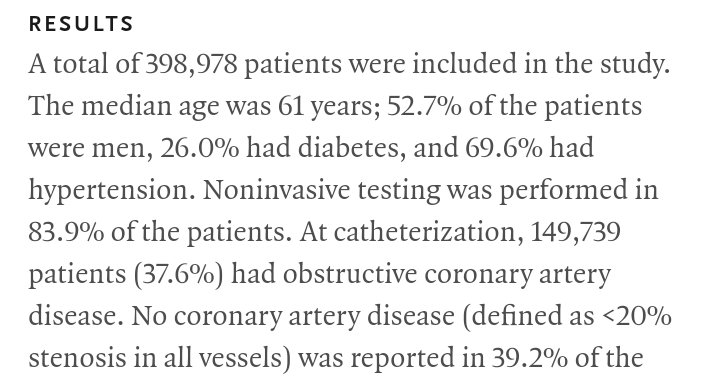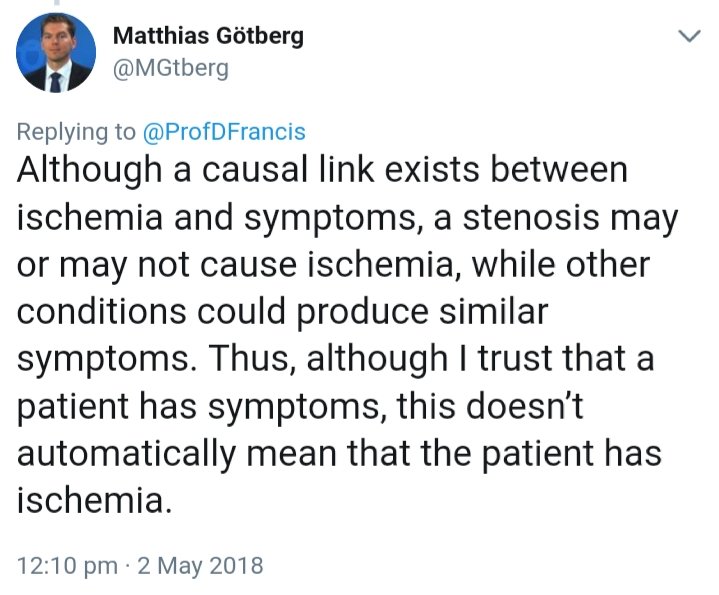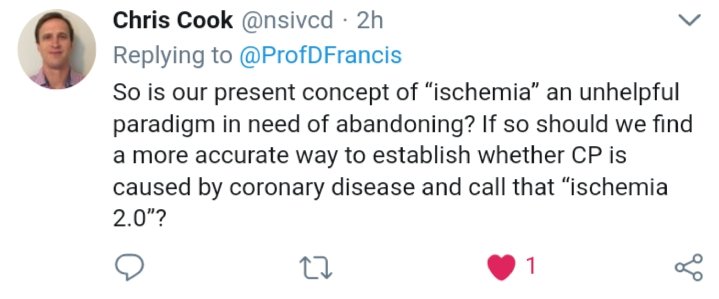Perhaps much of what we call "ischemia", for lack of a better word, is asymptomatic.
If true, it would have several effects.
Do you see this in your practice ?
3. What do we do with such patients ?
First timers.
How many patients, roughly ?
(They defined this as nothing >50% in LMS and nothing >70% in the other main arteries)
And on the other hand we a substantial proportion of people with symptoms etc and no obstructive coronary disease.
60% Unobstructed arteries (no lesion more than 50% in LMS or 70% elsewhere)
including
40% NORMAL arteries (no lesion more than 20%)
This is what we normally do.
If in doubt, think about:
Bullfighting in Spain
Seal-clubbing in Canada
Gun-carrying in USA
Before reading ORBITA, what benefit would you have expected for patients having not POBA but modern stenting. 94-96% of them had 1 or more ischemia tests.
Symptoms + Positive ischemia test + Severe coronary lesions(s)
we assume the causation is obvious:
STENOSIS -> ISCHEMIA -> SYMPTOMS
If this assumption is CORRECT, what would you expect to be the symptomatic effect of stenting lesions?
(i.e. if much of symptoms in pts with coronary disease is NOT due to coronary disease, and much of coronary disease does NOT cause symptoms, how effective will PCI be in relieving symptoms?)
Below is a still image of Justin Davies, Rasha and myself from the live video feed at ORBITA hq when the results emerged.
Rasha is pointing to the +16.0 saying "maybe that is a fly, not a decimal point ?"

and the +16s blinded stenting (94 to 96% with 1 or more positive ischemia tests) at 6 weeks in ORBITA, 200pts.
Most plausible explanation for difference?
But the challenge here is not whether there is ischemia in ORBITA: 94 to 96% of patients had 1 or more positive ischemia tests. So answer = yes.
The challenge is whether their plausibly ischemic symptoms did in fact arise from ischemia.
circoutcomes.ahajournals.org/content/11/3/e…
Here is the effect of Faith Healing ALONE, no POBA, no stenting. Powerful stuff, by any yardstick!















